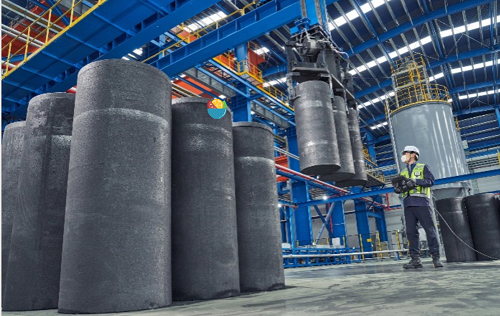Battery anodes
China’s graphite export controls could deal a blow to South Korea’s battery industry.
South Korean EV battery and battery component manufacturers are concerned about the Chinese government’s imminent restrictions on exports of graphite, a key mineral used in almost all EV battery anodes.

Graphite material anode factory
Export Control for Graphite Items
On October 20, the Ministry of Commerce and the General Administration of Customs jointly issued the “Announcement on Optimizing and Adjusting the Temporary Export Control Measures for Graphite Items”, requiring that relevant items shall not be exported without permission.
On the temporary export control measures for graphite items, three highly sensitive graphite items, including spherical graphite, which were previously temporarily controlled, were officially included in the export control list of dual-use items.
- (1) High purity (purity > 99.9%), high strength (flexural strength > 30Mpa), high density (density > 1.73 g/cubic centimeter) artificial graphite materials and their products
- (2) Natural flake graphite and its products (including spherical graphite, expanded graphite, etc.)
At the same time, the temporary control of five kinds of low-sensitive graphite items, such as carbon electrodes for furnaces, which are mainly used in basic industries of the national economy, such as iron and steel, metallurgy, and chemical industry, will be abolished.
The above policy will be officially implemented from December 1, 2023.
Relies on Chinese graphite
Given South Korea’s dependence on Chinese graphite supplies, China’s export restrictions on graphite, a key material for anodes at the heart of EV batteries, could hinder the business expansion of South Korean battery and component manufacturers.
Between January and September, South Korea imported $79.1 million worth of synthetic graphite, about 95 percent of which came from China.
South Korean EV battery makers say it is almost impossible to find a substitute for Chinese graphite imports, and that the operation of South Korean EV battery factories will depend on export controls by the Chinese government.



